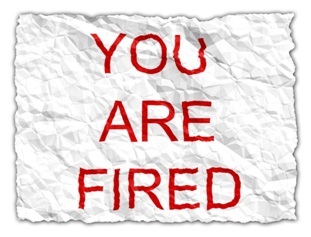The first thing that you need to remember when preparing an answer for this question is never to say anything negative about the previous employer. The goal here is to not let your potential employer think that if things don’t pan out, you’re going to tell other people uncomplimentary things about him. Regardless of what the reason for the firing might have been, you don’t want your potential new boss to have any negative impressions in her mind.
The next thing you need to remember is that whenever you’re telling a story, it can easily be misinterpreted by other people. By not making negative comments, you can avoid having your side of the story seen as excuses. It’s easy to get carried away with the emotions you felt and be viewed as biased.
In preparing your answer, you need to focus on the positive aspects of your stay with your previous employer. Share how your stay there helped you grow as a professional; explain the big tasks you took on and succeeded in, as well as the new skills you developed with the experience you had. Even if you want to share the injustice you felt when you were fired, you need to stay on course with your goal. You want to promote who you are as a professional and the value you can bring to their company, and not the bad experience you recently had.
The last thing you need to remember is to be careful about the references you choose to give. When the interviewer asks for references, you should give other recent references if you are concerned that your last boss will only have disparaging things to say about you. If the interviewer asks why, be tactful in explaining the reason why you did this.
Something that you need to remember is that whenever you come in for an interview, you need to take your negative experiences and turn them into something positive. That’s one of the keys to success in your job search.


 The hardest thing to talk about to a potential employer is being fired from your last job. No employee wants to discuss this with an interviewer, especially when it can affect the hiring decision. It’s natural to be concerned about what the employer might think if he finds out that you got fired, even if the reason for the firing wasn’t entirely your fault. If you find yourself in this situation, it’s important to have a well-prepared answer so the interview can continue smoothly.
The hardest thing to talk about to a potential employer is being fired from your last job. No employee wants to discuss this with an interviewer, especially when it can affect the hiring decision. It’s natural to be concerned about what the employer might think if he finds out that you got fired, even if the reason for the firing wasn’t entirely your fault. If you find yourself in this situation, it’s important to have a well-prepared answer so the interview can continue smoothly.